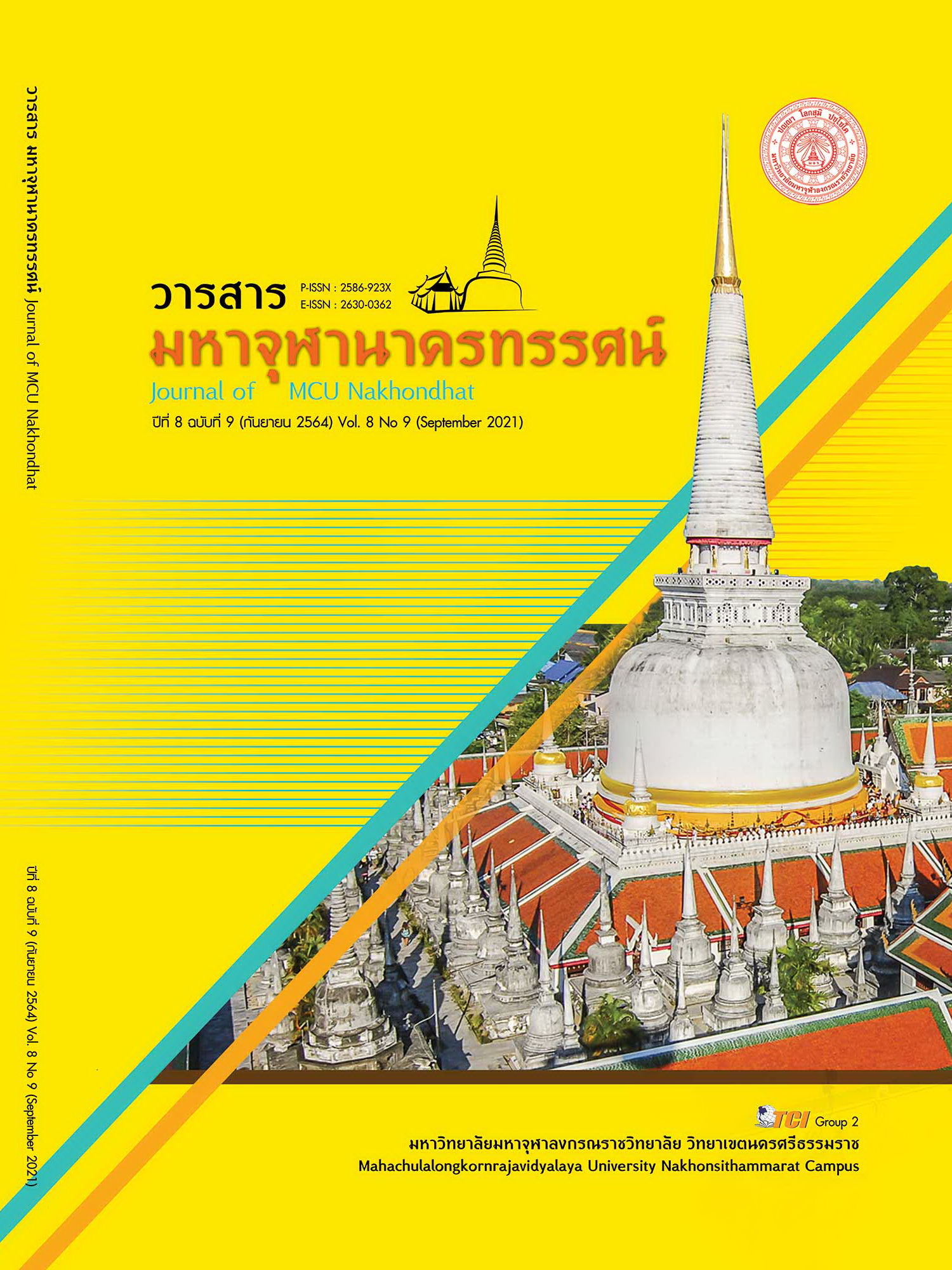PREPARING THE ELDERLY AND DEVELOPING KNOWLEDGE OF CAREGIVERS OF DIFFERENT AGES
Main Article Content
Abstract
The objectives of this research article were to prepare the elderly and develop knowledge of caregivers of different ages which is a mixed research method. The sample group consisted of 2 groups, 40 elderly caregivers and 40 elderly people in Khon Kaen Municipality, totaling 80 people. The research instruments were 1) a training programfor youth to understand and response to the elderly and 2) a training program for elderlyto understand the life during the aged year which were developed by the researcher, 3) atest of knowledge and understanding about the needs of the elderly and 4) a test ofknowledge and understanding of the elderly for ageing life. The results showed that both sample groups had knowledge and understanding about ageing. When a t-test was used tocompare the pre- and post-test scores of those attending the training, it was found that there were significant differences at the .05 level in both groups. The participants had positive attitudes and had greater knowledge and understanding than before the training. This shows that the sample group is ready to take care of the elderly. Therefore, the developed courses are of sufficient quality to serve similarly qualified target groups. It was noted that caring for the elderly should focus on holistic development. both in the part of the elderly themselves, related persons and the community to be able to understand the context of the elderly as well as providing practical care for the elderly.
Article Details
References
ปราโมทย์ ประสาทกุล และคณะ. (2555). ผู้สูงอายุ:คนวงในที่จะถูกผลักให้ไปอยู่ชายขอบ ประชากรและสังคม. นครปฐม: สำนักพิมพ์ประชากรและสังคม.
เพ็ญณี (กันตะวงษ์) แนรอท และณรงค์ เกียรติคุณวงศ์. (2562). การดูแลผู้สูงอายุบทเรียนจากเมืองโกเบ. ขอนแก่น: พิมพ์ถูกขอนแก่น.
เพ็ญพิไล ฤทธาคณานนท์. (2550). พัฒนาการมนุษย์ - Human development. (พิมพ์ครั้งที่ 2). กรุงเทพมหานคร: คณะจิตวิทยา จุฬาลงกรณ์มหาวิทยาลัย.
ศศิพัฒน์ ยอดเพชร และคณะ. (2556). สถานการณ์ ศักยภาพและความพร้อมของไตรภาคีในการพัฒนาระบบสุขภาพชุมชนใน พื้นที่ 12 ตำบล. วารสารระบบ สาธารณสุข , 3(3), 389-394.
สุพัตรา ศรีวณิชชากร และคณะ. (2556). สถานการณ์ ศักยภาพและความพร้อมของไตรภาคีในการพัฒนาระบบสุขภาพชุมชนใน พื้นที่ 12 ตำบล. วารสารระบบ สาธารณสุข, 3(3), 389-394.
Campbell, A. (1976). Subjective measures of Well-being. American Psychologist, 31(2), 117-124.
Dalkey, N. C. & Helmer, O. (1963). An experimental application of the Delphi method to the use of experts. Management Science, 9(3), 458-467.
Ferrens, C. & Powers, M. (1985). Quality of Life Index: Development and psychometric Properties. Advances in Nursing Science, 8(1), 15-24.
Lim, H. & Kim, K. H. (2019). A study on how elderly people are preparing for dying well. Journal of the Korea Academia-Industrial, 20(9), 432-439.
Orem, D. E. (1991). Nursing: Concepts of practice. (4th Ed.). St. Louis: C. V. Mosby.


